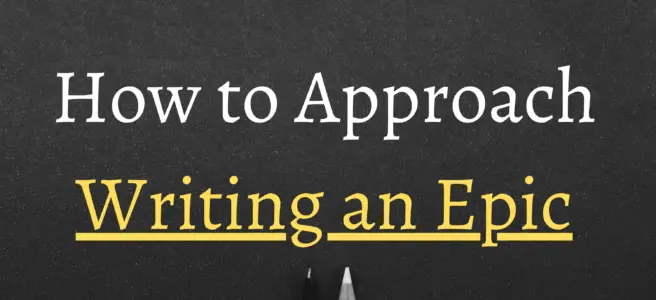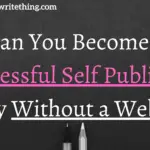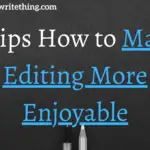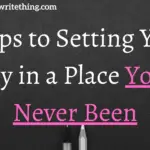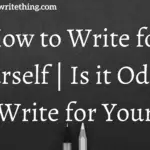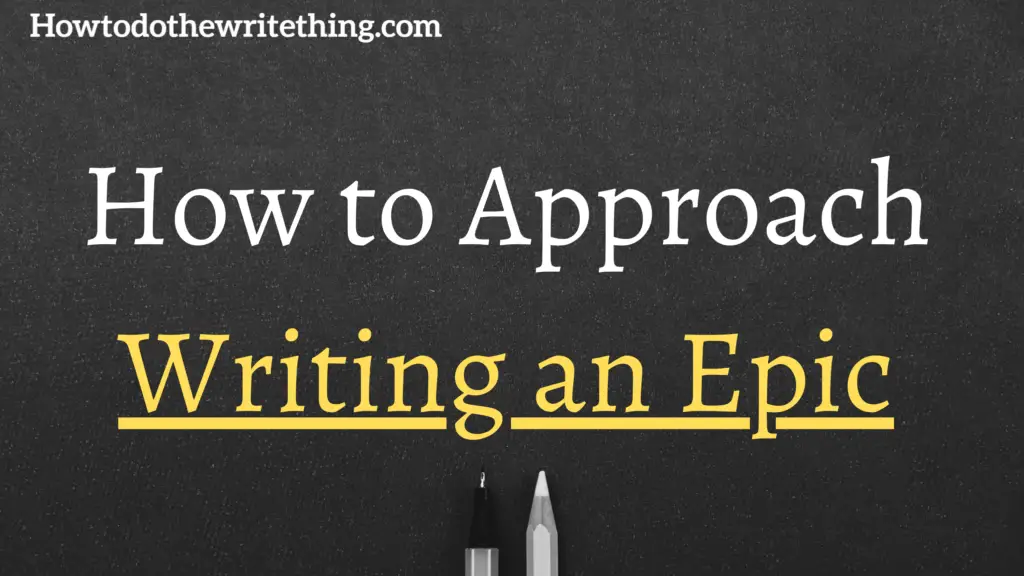
How to Approach Writing an Epic
Writing an epic novel with a large cast, wars, massive cities, and treachery around every corner seems really daunting.
After all, those that have succeeded are kind of giants in the genre.
George R. R. Martin wrote his entire life before starting his epic at 42.
Tolkien with Lord of the Rings is a legend.
How does an author even get started on a powerful journey like these authors?
It obviously starts on page one, but how do we really get started?
Read successful writers of epics strategically.
If we really want to write an epic, we are past the season of reading books passively just for leisure. It’s time to focus in on the details and figure out the structure.
Focus on many characters but a few main ones.
Think about any epic you’ve ever read or watched.
The story hits a large cast of characters, but in certain chapters, we see more of others and less of some. For about 3 to 6 characters we see a lot of them over the entirety of the epic.
There may not be one true protagonist. It may be a protagonist nation or trio.
Sure we could say Frodo is the main protagonist, but we see so much of each of the group that at times we almost switch protagonists. It really seems like in epics it’s easy to have a protagonist group and an antagonist group.
The Fellowship of the Ring vs the armies of Sauron.
You can really do either. You can have a major protagonist, Bilbo/ Frodo, and a major antagonist Sauron/ Smaug, but in epics, you are more likely to have many protagonists and antagonists depending on the moment.
In the Chronicles of Narnia, each book has different protagonists. Just reading The Lion, The Witch, and The Wardrobe without any background you might not think there is no major protagonist, but with revelation from C. S. Lewis later it seems it was Lucy because he wrote Lucy for his granddaughter.
Interested in starting a blog of your own? Check out Bluehost.
How do you fit a small central cast into a large epic world?
Just follow them through it.
To make the world appear larger than it is on the page, take the reader on multiple character journeys in one story.
While Frodo is climbing through Mordor, what are Merry and Pippin doing? What is Legolas doing while they’re doing that? How far apart are they? What kingdoms are they in?
Show your reader just how big the world is through many character story arcs and their varying travels.
Start with a small cast and separate them over time.
Your world could start small.
Start with a few main characters in a small peaceful part of the world. Then characters from across the world interrupt their small “safe” lives.
Then they have to leave that safe place. Along the way, they get separated from each other, and then we really start to explore the world through the different journeys of multiple character arcs.
Think about Tolkien. We start in the Shire with a few Hobbits, but then a worldly Wizard shows up. They then are forced to leave home to help save their existence as they know it. Over time their group grows and they travel together.
But then they are separated.
After this, we see the epic size of the world and several battles and armies all at once through the different journeys of our separated group that we started with.
Interested in starting a blog of your own? Check out Bluehost.
Little things can have big effects.
A letter from a neighboring nation can be an easy trick to give more tension and reveal the world the reader is in.
If your King figure receives a message from the neighboring kingdom that they were overrun by the enemy, you can use this to have the characters tell the reader more about the epic size of the world.
“How has Masadoria fallen? They were five hundred thousand. We are only a hundred thousand, if even that. What kind of evil do we face?
Rider! Quickly! Ride to Galla. Find the blacksmith Rodan. Tell him King Norius says it’s time. He’ll know what to do. Go!”
Don’t just try to go through a checklist of places and numbers without cleverly finding a way to naturally give the reader the information you want them to have.
Make battles roadblocks the reader must get through.
If a major battle happens that our heroes must face. Our reader must face it also. Don’t skip over it as if it isn’t important to the story moving forward. The battle should be the story moving forward.
Talk about the large details of the battle and use specific moments with the main characters to get us down into the trenches with them to better feels the tension and emotions of the moment.
“The army covered the land like a sea. Rodan couldn’t see past it. He thought of Asura. Would he really see her again?”
“He thrust his sword through two quickly. On his third swing, he struck a shield and the blade snapped. He threw the broken blade and ran back looking for anything useful on the ground…”
Be sure to give them the big picture and the small picture to keep it epic and interesting.
Final Thoughts
Read epics as a student, not just a reader.
Create a group that you are going to separate so that we can see the immensity of the world you’re creating.
Follow the little details to get us into the heat and tension of the moment.
Use large scenes with bigger details to help us see the immensity of the situation.
How to Approach Writing an Epic
Enjoying How to Approach Writing an Epic? Take a moment and consider sharing this social-friendly image to say thanks and feel free to comment with your thoughts below! 🙂
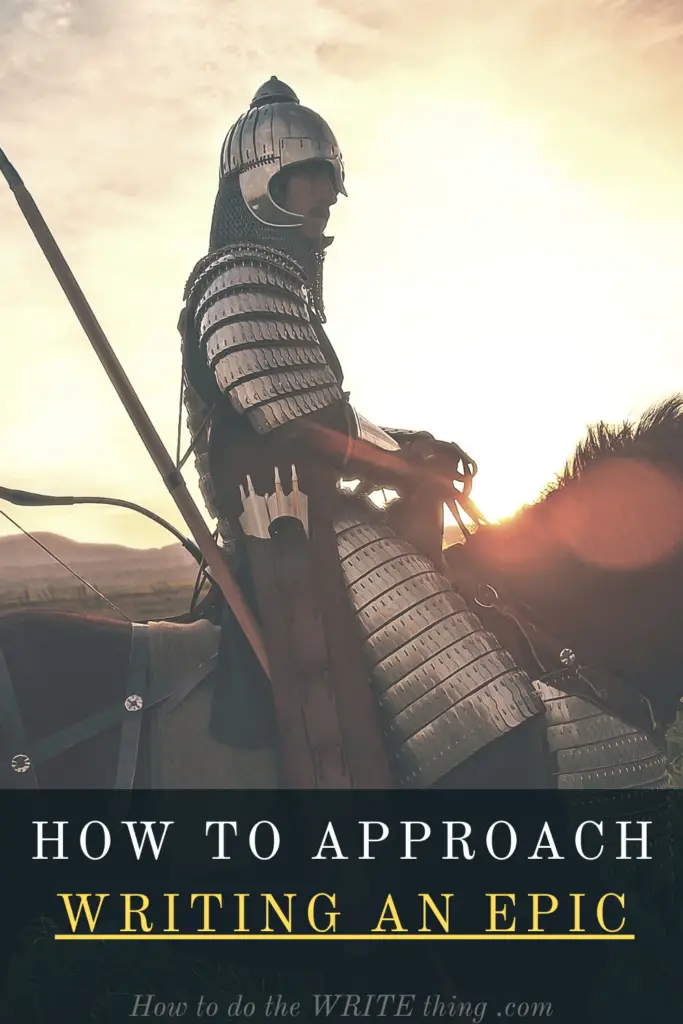
Interested in starting a blog of your own? Check out Bluehost.
Hope this helps!
Happy writing!
Resources:
How to Start a Blog in 11 Simple Easy Steps in 2020
How to Write a Book: 32 Tips | Your MASSIVE Guide How to Write a Book
This post:
How to Approach Writing an Epic
Interested in starting a blog of your own? Check out Bluehost.
Make sure your posts are readable. Use this readability score check
Want to check out a writer’s community to test your writing and get feedback?
Check out these FREE trial resources from Amazon for when you work from home (or are stuck at home 🙂 ) As an Amazon associate, if you do sign up or buy anything using Amazon links from our site we make a commission at no extra cost to you.
Free Prime Membership Trial:
Try Amazon Prime 30-Day Free Trial
Try Prime Discounted (Free Trial)
How to Approach Writing an Epic
Enjoying How to Approach Writing an Epic? Take a moment and consider sharing this social-friendly image to say thanks and feel free to comment with your thoughts below! 🙂
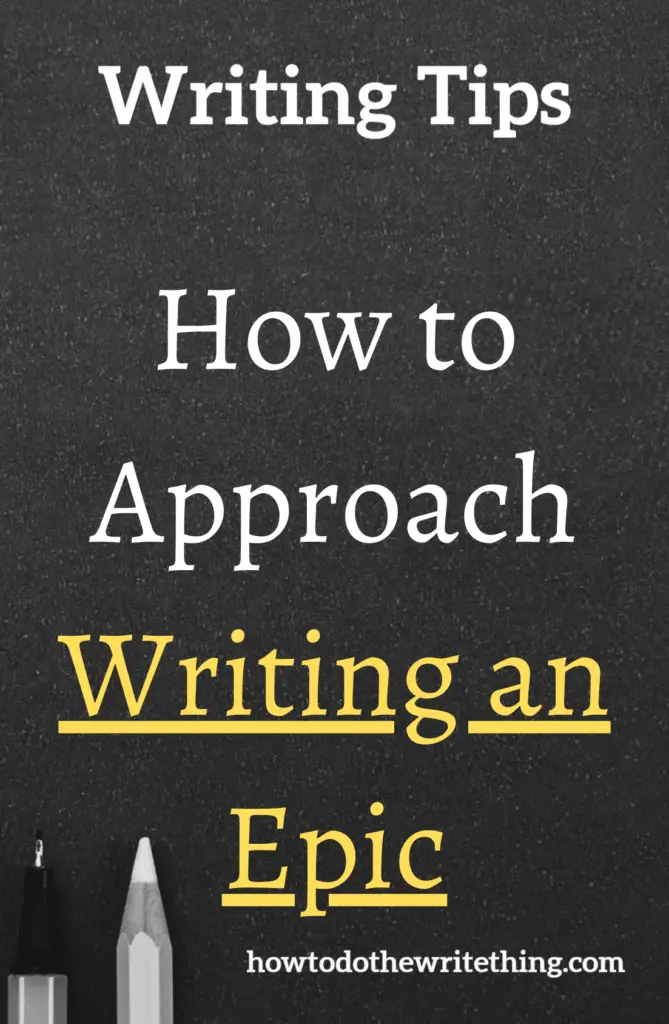
We hope you enjoyed: How to Approach Writing an Epic!
